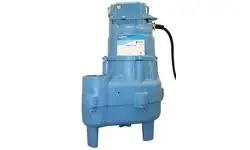English
- Afrikaans
- Albanian
- Amharic
- Arabic
- Armenian
- Azerbaijani
- Basque
- Belarusian
- Bengali
- Bosnian
- Bulgarian
- Catalan
- Cebuano
- Corsican
- Croatian
- Czech
- Danish
- Dutch
- English
- Esperanto
- Estonian
- Finnish
- French
- Frisian
- Galician
- Georgian
- German
- Greek
- Gujarati
- Haitian Creole
- hausa
- hawaiian
- Hebrew
- Hindi
- Miao
- Hungarian
- Icelandic
- igbo
- Indonesian
- irish
- Italian
- Japanese
- Javanese
- Kannada
- kazakh
- Khmer
- Rwandese
- Korean
- Kurdish
- Kyrgyz
- Lao
- Latin
- Latvian
- Lithuanian
- Luxembourgish
- Macedonian
- Malgashi
- Malay
- Malayalam
- Maltese
- Maori
- Marathi
- Mongolian
- Myanmar
- Nepali
- Norwegian
- Norwegian
- Occitan
- Pashto
- Persian
- Polish
- Portuguese
- Punjabi
- Romanian
- Russian
- Samoan
- Scottish Gaelic
- Serbian
- Sesotho
- Shona
- Sindhi
- Sinhala
- Slovak
- Slovenian
- Somali
- Spanish
- Sundanese
- Swahili
- Swedish
- Tagalog
- Tajik
- Tamil
- Tatar
- Telugu
- Thai
- Turkish
- Turkmen
- Ukrainian
- Urdu
- Uighur
- Uzbek
- Vietnamese
- Welsh
- Bantu
- Yiddish
- Yoruba
- Zulu
Telephone: +86 13120555503
Email: frank@cypump.com
Nov . 20, 2024 07:21 Back to list
sump pump for septic systems
Sump Pumps for Septic Systems An Essential Component
When it comes to managing wastewater effectively, septic systems play a crucial role in many homes, particularly in rural areas. For these systems to function properly, various components must work in harmony. One such essential component is the sump pump. Understanding the role and importance of sump pumps in septic systems can help homeowners maintain their systems effectively and prevent costly issues.
Sump Pumps for Septic Systems An Essential Component
By utilizing a sump pump, homeowners can prevent flooding and wastewater backflow. This not only helps protect the integrity of the septic system but also safeguards the home and surrounding environment. When water is efficiently removed, the risk of bacteria and contaminants leaking into the groundwater is significantly reduced, making it a vital tool for maintaining public health.
sump pump for septic systems

Installing a sump pump in a septic system involves several key considerations. First, homeowners should assess their specific needs based on the size of their property, the amount of rainfall in their area, and the current condition of their septic system. It is often advisable to consult with a professional to ensure the right type and size of sump pump is selected. The pump should be rated for sewage applications to handle the demands of a septic system effectively.
Regular maintenance is crucial for sump pumps to operate at peak efficiency. Homeowners should routinely inspect and clean the pump, checking for clogs or debris that might hinder performance. Testing the pump periodically by pouring water into the sump pit can help ensure it activates correctly. Additionally, having a backup power source, such as a battery, can provide peace of mind in the event of a power outage.
In conclusion, sump pumps are a critical component of septic systems that help manage excess water, prevent flooding, and protect the environment. By understanding their importance and ensuring proper installation and maintenance, homeowners can significantly extend the life of their septic systems and avoid costly repairs. Investing time and resources into these systems ultimately leads to safer and more sustainable water management practices.
-
Horizontal Split Case Pump with GPT-4 Turbo | High Efficiency
NewsAug.01,2025
-
ISG Series Pipeline Pump - Chi Yuan Pumps | High Efficiency, Durable Design
NewsAug.01,2025
-
Advanced Flue Gas Desulfurization Pump with GPT-4 Turbo | Durable & Efficient
NewsJul.31,2025
-
ISG Series Vertical Pipeline Pump - Chi Yuan Pumps | Advanced Hydraulic Design&Durable Construction
NewsJul.31,2025
-
ISG Series Vertical Pipeline Pump - Chi Yuan Pumps | Energy Efficient & Low Noise
NewsJul.31,2025
-
pipeline pump - Chi Yuan Pumps Co., LTD.|High Efficiency&Low Noise
NewsJul.31,2025










